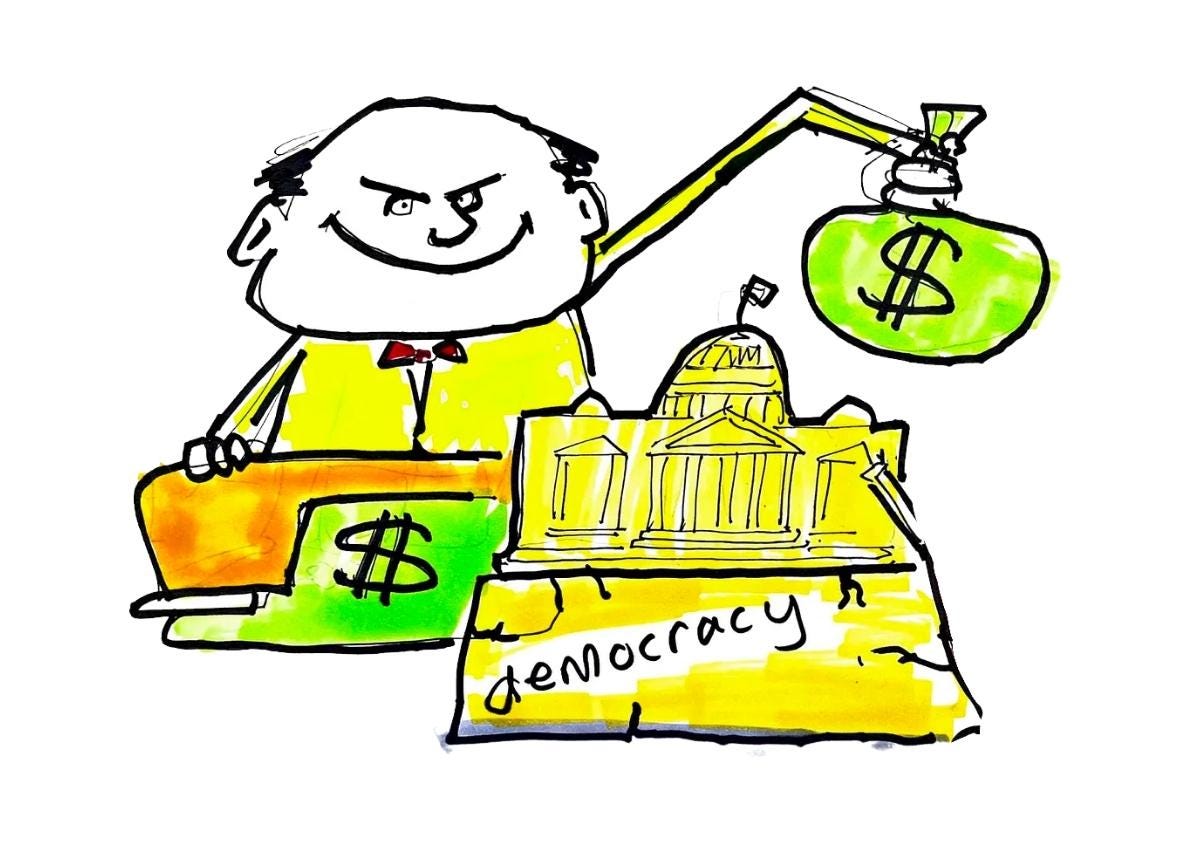On Tuesday, in a House Democratic primary contest to represent a predominantly Black middle-class district north and east of Washington, DC., Glenn Ivey, a former state’s attorney for Prince George’s County, defeated Donna Edwards, the first Black woman elected to the House from Maryland. (Edwards left the seat to run unsuccessfully for the Senate in 2016 and had hoped to return.)
Progressive groups backed Edwards, but television and radio were saturated with ads questioning her willingness to perform basic services for her constituents and to make the kinds of compromises necessary for legislative success. The argument was horse manure.
Where did the money for those ads come from? The American-Israel Political Affairs Committee (AIPAC) and its new super PAC, the United Democracy Project (along with another group, the Democratic Majority for Israel). Together they spent almost $7 million to defeat Edwards. That’s a staggering sum for a single Democratic primary.
What did Edwards do to deserve this degree of AIPAC enmity? Could it have been because she was an early supporter of a nuclear deal between Iran and five industrial countries, including the United States? Probably not, because that hardly distinguished her from most other Democrats. Besides, the Obama administration supported the deal. Was it because Edwards took a number of votes that expressed support for Palestinian rights and the resumption of a meaningful peace process? These were hardly outside of the mainstream.
So what was it? Dig deeper.
Remember, AIPAC never used to endorse candidates. Until this election cycle, it didn’t even have a super PAC. But it’s on the way to spending nearly $20 million in the 2022 Democratic primaries alone. That makes it the single most influential political group in Democratic electoral politics. And what’s the criterion for whom AIPAC supports in Democratic primaries?
If AIPAC were simply aiming to promote Israel or deter antisemitism, presumably it would be as active in Republican primaries as it is in Democratic ones. But it has barely spent a dime in Republican primaries — not even against Republican candidates who have been widely criticized for antisemitic comments. And its United Democracy Project super-PAC hasn’t spent a penny.
AIPAC hasn’t supported a Republican primary challenger to Marjorie Taylor Greene (who claimed that Jewish space lasers were behind California’s 2018 wildfires), for example. But AIPAC has endorsed Republican Scott Perry, who compared Democrats to Nazis.
The real criterion for AIPAC’s support or enmity in Democratic primaries seems to have more to do with which candidate is friendlier toward America’s moneyed interests and the Republican agenda. When Edwards was last a member of Congress, she backed single-payer health care and was one of the early champions of sweeping campaign finance reforms. Both irked big money. In the pending race between Haley Stevens and Andy Levin in Michigan’s 11th Congressional District, AIPAC is supporting Stevens (who has a history of fighting worker protections) against Levin (who is a labor champion).
AIPAC is on the way to becoming a Republican front group. Much of AIPAC’s trove is coming from Republican donors. In May, Republican billionaires Paul Singer and Bernie Marcus donated $1 million each to AIPAC’s super PAC. Marcus famously gave $7 million to President Trump’s campaign in 2016.
So far in this election cycle, AIPAC has endorsed over 100 Republican candidates who refused to certify the 2020 election results.
What to do about this?
First, Democrats must stop allowing AIPAC to be a Democratic kingmaker. The Democratic leadership in Congress must openly criticize AIPAC’s role in Democratic primaries. Democratic candidates should cease taking money from AIPAC in primaries and condemn candidates who do.
Second, all of us need to get behind campaign finance reforms that prevent big money from whatever source from corrupting our elections. Such reforms are possible notwithstanding the Supreme Court’s horrific Citizens United decision. The House has already passed legislation that would encourage small-dollar donations by matching them dollar-for-dollar with public financing. Like most other reforms, it’s been stalled in the Senate. We must elect Democrats to the Senate who will pass this.
Finally, if you’re concerned about Israel’s future or about antisemitism in America, I’d recommend you not give another penny to AIPAC and urge others to cease funding AIPAC, too. Instead, consider supporting “J Street,” the pro-Israel nonprofit group that advocates diplomacy-based solutions and supports progressive candidates, or If Not Now.
What do you think?













Share this post